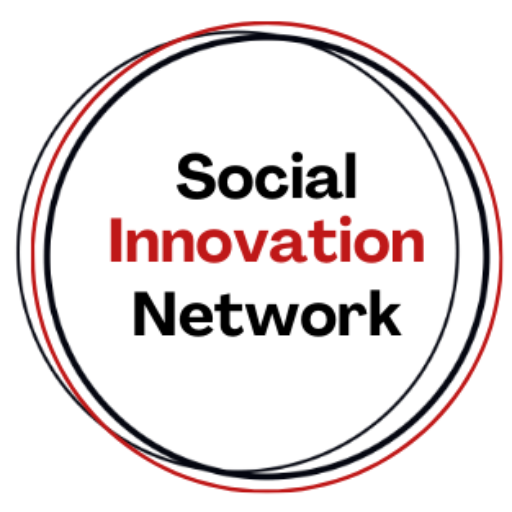Community development and NGO work in Africa was and still is very challenging, with the continent’s vast diversity in economic conditions, culture and diversity presenting unique hurdles for organizations on the ground.For a lasting and positive impact, NGOs’ and community workers must navigate a variety of operational, financial, and societal obstacles. However, there are also growing opportunities that hold the potential for transformative change.
Social Challenges
Cultural Diversity and Local Customs
Africa’s incredible diversity; it has great potential but big challenges. The continent has over 3,000 ethnic groups, each with its own traditions and beliefs, NGOs and community workers often find themselves needing to deeply understand and respect these differences. For instance, promoting women’s empowerment might face a push-back in patriarchal regions. Without aligning efforts with local norms, projects can face insurmountable challenges due to
societal pressure and mistrust.
Gender Inequality
Gender inequality is a major barrier in many African communities. Women have limited access to education, economic opportunities, and healthcare services. Projects and initiatives aiming to counter these issues sometimes face major push backs— usually from men but also from women who are incorporated by societal norms. Thus, gender-based development work becomes extremely challenging.
Political Instability
In Africa, political unrest is a common occurrence; the Democratic Republic of Congo and regions such as the Sahel, have been suffering regular violence and population displacement which makes it very challenging for NGOs to operate consistently. Such disruptions effect both the safety and sustainability of community development projects.
Distrust towards Foreign NGOs
There is strong skepticism toward international NGOs in some communities, often this is the result from past negative experiences or a perception that these organizations push foreign ideals. The colonial history of Africa has left a deep scar on the local communities, and foreign NGO led projects that do not deliver further reinforces the perceptions and increases mistrust.
Limited Access to Education and Training
Education is pivotal for community development, but most African regions lack essential resources and infrastructure to provide it adequately. Without sufficient training, local workers struggle to manage and sustain projects after NGO teams leave, hampering long-term success.
Financial Challenges
Funding Shortages
The budgets for community development projects are very scant, international donors sometimes are their only source of funding, but funding can be unpredictable, and grants need to meet specific goals thus limiting flexibility. The limitation of funds results in increased competition hence the fragmentation of efforts, with organizations becoming more funding focused than the projects themselves.
Corruption and Mismanagement
The curse of corruption has plagued Africa for decades; whenever the projects are within the jurisdiction of government or local NGOs, funds are removed and pocketed by the authorities. Money meant for community development often doesn’t reach its intended recipients, and without transparency, trust in future initiatives fades.
High Operational Costs
Operating in conflict-prone regions is risky and very expensive. Transportation, security, and basic supplies add up quickly, straining already limited budgets. For smaller NGOs, these costs can prevent them from carrying out meaningful work on the ground.
Opportunities with Growing Potential
Technology and Digital Inclusion
A digital revolution is spreading in Africa. Cellular phones and the internet are rapidly spreading throughout the region, including the rural areas. NGOs are bolstering their digital tools to support the sectors of education, financial services, and healthcare. For example: financial systems like M-Pesa have revolutionized the money banking structure in Kenya, and have increased financial inclusion for the wider population; other examples can be the telemedicine programs which are connecting rural patients with healthcare providers in cities.
Renewable Energy
Africa’s potential for solar and wind energy is vast; many NGOs are utilizing these resources to provide electricity service to off-grid communities. With affordable access, clean energy can be a beacon of hope for local communities and assist in creating opportunities for small businesses and education.
Agriculture and Sustainable Development
Agriculture is central for Africa’s economy, currently there is a growing focus on sustainable farming methods to improve both income and food security. Programs that teach agroecology, crop diversification, and water conservation are helping communities become more self-reliant while protecting the environment.
Pros and Cons of the Current Stance
Pros:
Increase of Local Engagement: There’s an increasing recognition that local communities need to play a pivotal role in development efforts. NGOs are partnering local leaders, which benefits in building trust and ensures the proper utilization of projects.
Move Toward Sustainability: Quick fixes are becoming unpopular among organizations and instead they are now focusing on sustainable, long-term solutions infrastructure development and skill-training programs.
Technological Advancements: Spread of internet and mobile phones has allowed the penetration into remorse areas which were otherwise impossible to reach.
Cons:
Foreign Aid Dependence: International donations are crucial for the community development projects; moreover, the donor priorities shift makes local organizations and projects vulnerable.
Corruption Issues: There is a constant effort for the increase of transparency, yet corruption remains prevalent. Project funds are misplaced intentionally, and this lack of accountability damages the trust of both the local community and the donors.
Fragmented Efforts: Many NGOs are now working independently, often there is the issue of inefficiency and the duplication of efforts amongst NGOs. Over the long run, such practices will not only hurt the project but also affect the operation of the NGO, thus – cooperation between organizations’ must increase for a greater impact.
Future Action Plan for Community and NGO Work
Strengthening Local Capacity
A project that increases local capacity is branded as the most effective. The empowerment of local leaders and providing management training will help communities take leadership of projects and ensure sustainability of their efforts.
Increase of Collaboration
NGOs should increase their collaboration further, governments, and local communities are essential to avoid duplication of efforts and ensure that resources are used efficiently. Aligning with national development plans can also improve the overall impact of these initiatives.
Ensure Transparency and Accountability
To build trust, NGOs must be transparent in their operations, particularly regarding how funds are used. Engaging local communities in oversight and adopting open reporting practices can help address issues of corruption and mismanagement.
Promote Sustainability
The priority for future projects should be sustainability in sectors like agriculture, water management, and energy. The focus on increased community ownership and Eco-friendly initiatives will ensure the project sustainability.
Utilizing Technology
Improving the access to digital tools and promoting digital literacy will be key to improving education, healthcare, and financial services in undeserved communities. The potential of utilizing technology in community work has substantial potential to revolutionize community development projects in Africa.
Advocate for Policy Changes
NGOs should work to influence policy at both the local and national levels. Pushing for reforms in education, healthcare, and economic development will help create a more supportive environment for community development.
In Conclusion, Community work in Africa is currently facing countless financial and social hurdles, but the potential for growth is vast. With a focus on local empowerment, sustainability, and the integration of technology, NGOs can overcome these obstacles and create lasting positive change. The key to success lies in collaboration, transparency, and a commitment to long-term solutions that address the real needs of African communities.
Reference
1. De Haan, Arjan. *Social Exclusion: Towards an Analytical and Operational Framework*. International Development Studies, 2015.
2. Mbembe, Achille. *On the Postcolony*. Berkeley: University of California Press, 2001.
3. United Nations Development Programme (UNDP). *Annual Report on Sustainable Development Goals in Africa*. New York: UNDP, 2018.
4. Dyer, Joseph C., Lindsay C. Stringer, Andrew J. Dougill, Julia Leventon, Mulako Nshimbi, Fidelis Chama, and Amon Kafwifwi. “Assessing Participatory Practices in Community-Based Natural Resource Management: Experiences in Community-Based Conservation in Southern Africa.” *Journal of Environmental Management* 137 (2014): 137-45.
5. Munyua, Hilda. *Information and Communication Technologies for Rural Development and Food Security: Lessons from Field Experiences in Developing Countries*. Sustainable Development Department, Food and Agriculture Organization of the United Nations (FAO), 2000.
6. Transparency International. *Corruption Perceptions Index 2020*. Berlin: Transparency International, 2020.
7. World Bank. *The Future of Work in Africa: Harnessing the Potential of Digital Technologies for All*. Washington, DC: World Bank, 2021.
8. Narayan, Deepa, Raj Patel, Kai Schafft, Anne Rademacher, and Sarah Koch-Schulte. *Voicesof the Poor: Can Anyone Hear Us?* New York: Oxford University Press, 2000.






